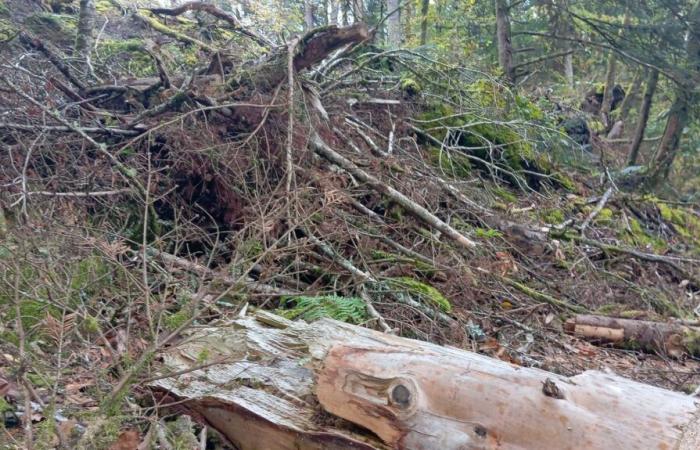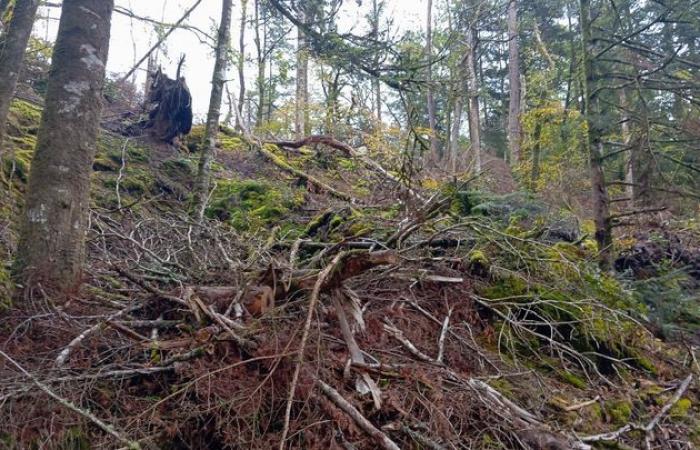Winds at nearly 200 kilometers per hour, it was a year ago, on the night of November 1 to 2, 2023, storm Ciaran hit France, followed a few days later by storm Domingos, with catastrophic damage to the forests in Brittany. In places, up to 80% of trees were laid down or uprooted by the force of the wind. A year later, the scars of Ciaran are still clearly visible, but the forests are gradually recovering.
Marie-Thé and René-Pierre's large house overlooks the Huelgoat forest, in Finistère. This retired couple even owns a small plot of land. “It was the woods that we liked, with these large rocks, there was an extraordinary atmosphere”they say. But Ciaran has since been there. “It was a pretty terrible night.”summarizes Marie-Thé. “And in the morning I was in tears”continues René-Pierre.
“Our forest was on the ground, there were branches everywhere, big holes, and these uprooted trees, including an enormous beech, it was terrible.”
René-Pierreat franceinfo

Further on, at the top of a hill, the storm brought down all the trees. “In several places, we have four to five hectares in one piece that have fallen”details Pascal Gauthier, from the National Forestry Office. But, among the branches that still litter the ground, an encouraging sign appears with a few small shoots.
“Five to ten centimeters is already good for a first year. We have a cypress, a birch, a Scots pine, a Douglas…”
Pascal Gauthier, NFBat franceinfo
“If the deer don’t eat them, it will really be the future of the forest,” explains Pascal Gauthier. “In Huelgoate in particular, we have the advantage of having the capacity to germinate a lot of species which will come back on their own, I am quite confident”he said.
Especially since the ONF is helping the area recover, first by clearing and reselling all the trees felled by the storm. This work is finished, now we must ensure that the forest regains its balance. Certain species, fir trees in particular, must not take precedence over others in regrowth: “The forester's dosage is to ensure that it does not invade everything. It is present, it renews itself, but we always try to calm its influence a little”he slips.
“It will be the choice that will be made in 10 or 15 years to cut down fir trees in favor of beech, oak, and chestnut trees.”
Pascal Gauthier, from the NFBat franceinfo
Whatever happens, it will take decades for the forest to return to its pre-Ciaran appearance, but climate change could complicate the return to normal. Storms risk becoming more and more violent and droughts more frequent, even in Brittany.







